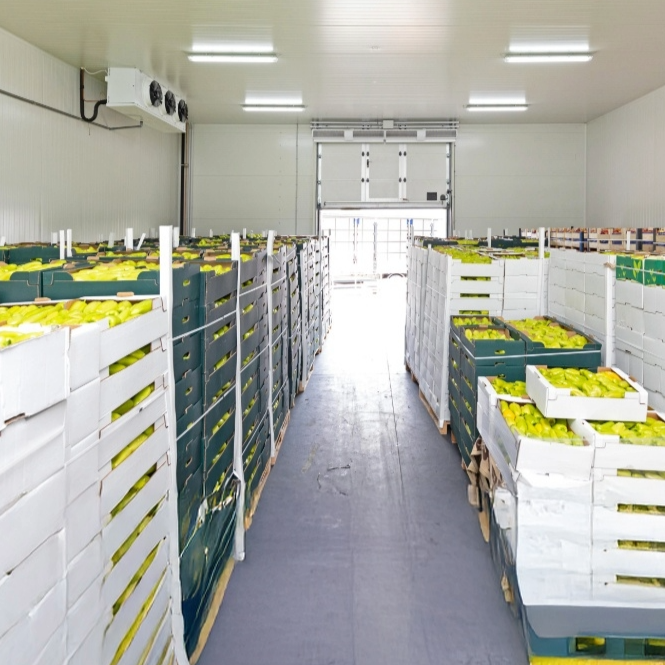Cold Storage for Fruits and Vegetables: Why It’s Essential for Freshness and Shelf Life

Cold storage for fruits and vegetables is one of the most important solutions in the food supply chain. Fresh produce goes through a long journey from farm to table, and without proper storage, fruits and vegetables can lose freshness, nutrients, flavor, and even safety. In this article, we explore why cold storage is crucial, how it preserves quality, and why every business handling fresh produce should invest in it.
What Is Cold Storage for Fruits and Vegetables?
Cold storage for fruits and vegetables refers to specially designed rooms or facilities where temperature, humidity, and airflow are controlled to slow down spoilage. Modern agriculture, retail, and export industries rely on cold storage to maintain product quality, reduce waste, and meet food safety standards.
Cold storage works by slowing down the respiration rate of fresh produce, preventing microbial growth, and maintaining moisture levels. This allows fruits and vegetables to stay fresh for much longer than they would at room temperature.
1. Preserves Freshness
Fresh fruits and vegetables continue to respire even after harvest. High temperatures accelerate this process, causing produce to soften, lose water, and spoil quickly. Cold storage for fruits and vegetables slows down respiration, keeping produce crisp, firm, and visually appealing for a longer time.
2. Extends Shelf Life
One of the main benefits of cold storage is its ability to extend shelf life. Supermarkets, restaurants, and exporters can keep products sellable for days or even weeks longer. Extending shelf life reduces losses and increases profitability for businesses while providing customers with fresher, higher-quality produce.
3. Maintains Nutritional Value and Flavor
Vitamin and mineral content in fruits and vegetables can degrade quickly without proper storage. Cold storage preserves nutritional value, taste, and aroma. For consumers, this means healthier, more flavorful food; for businesses, it means a better reputation for quality.
4. Ensures Food Safety
Cold storage prevents the rapid growth of bacteria, mold, and fungi. This reduces the risk of foodborne illness and ensures produce meets safety standards. For exporters, retailers, and restaurants, cold storage is a critical part of compliance with food safety regulations.
5. Provides Economic and Commercial Benefits
Investing in cold storage for fruits and vegetables reduces waste, improves customer satisfaction, and allows businesses to meet quality standards for export. It’s not just a storage solution—it’s a strategic investment that increases profitability, supports sustainability, and ensures consistent product quality.
Conclusion: Cold Storage Is a Necessity
For anyone dealing with fresh produce, cold storage for fruits and vegetables is no longer optional. It preserves freshness, extends shelf life, maintains nutritional value, ensures food safety, and supports business growth. Whether you are a farmer, retailer, or exporter, cold storage is a critical investment for maintaining quality and staying competitive.
